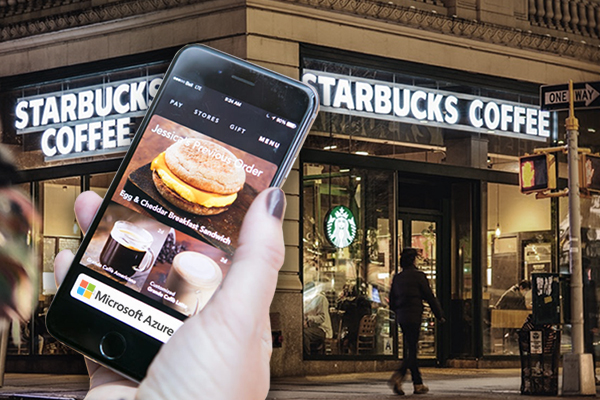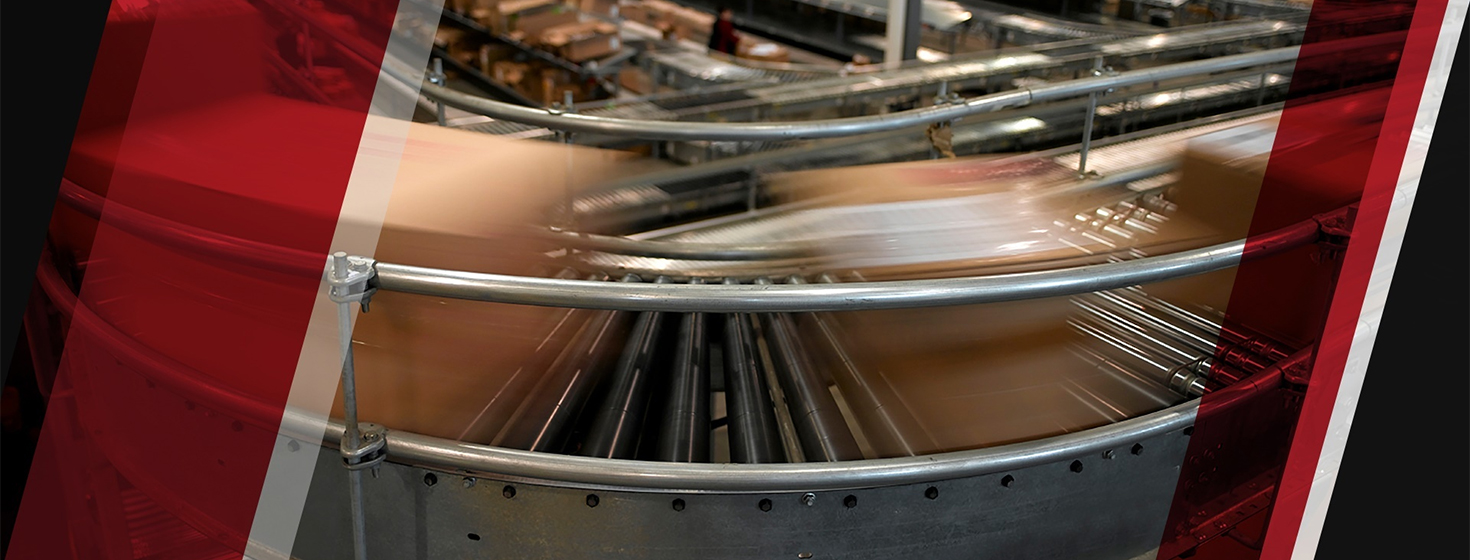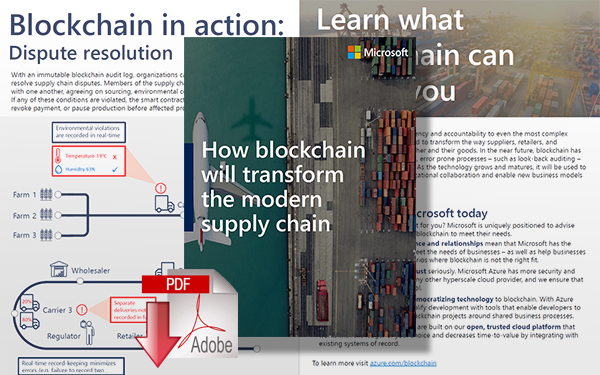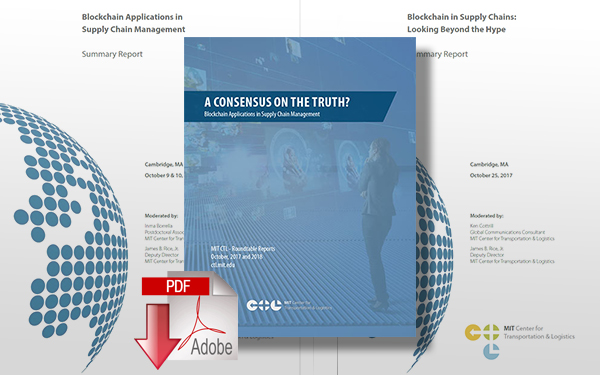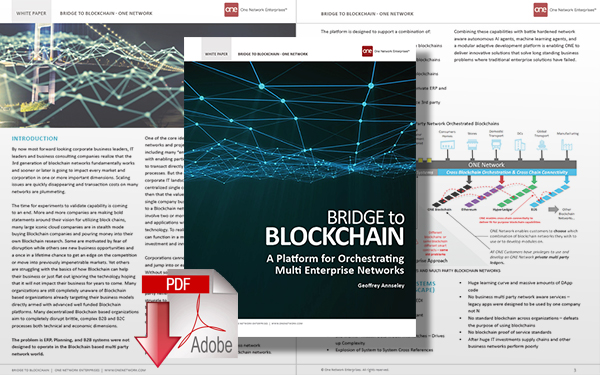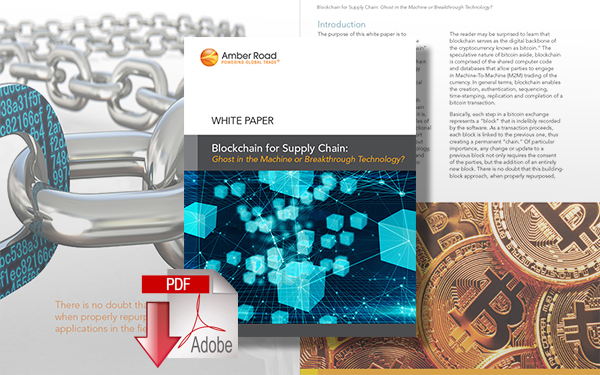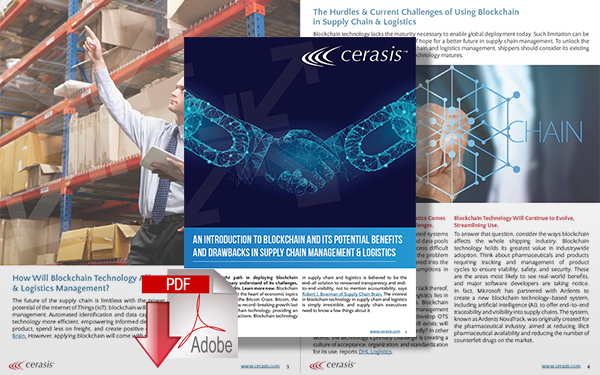Starbucks Provides Personal Customer Connection with Microsoft’s Reinforcement Learning Technology
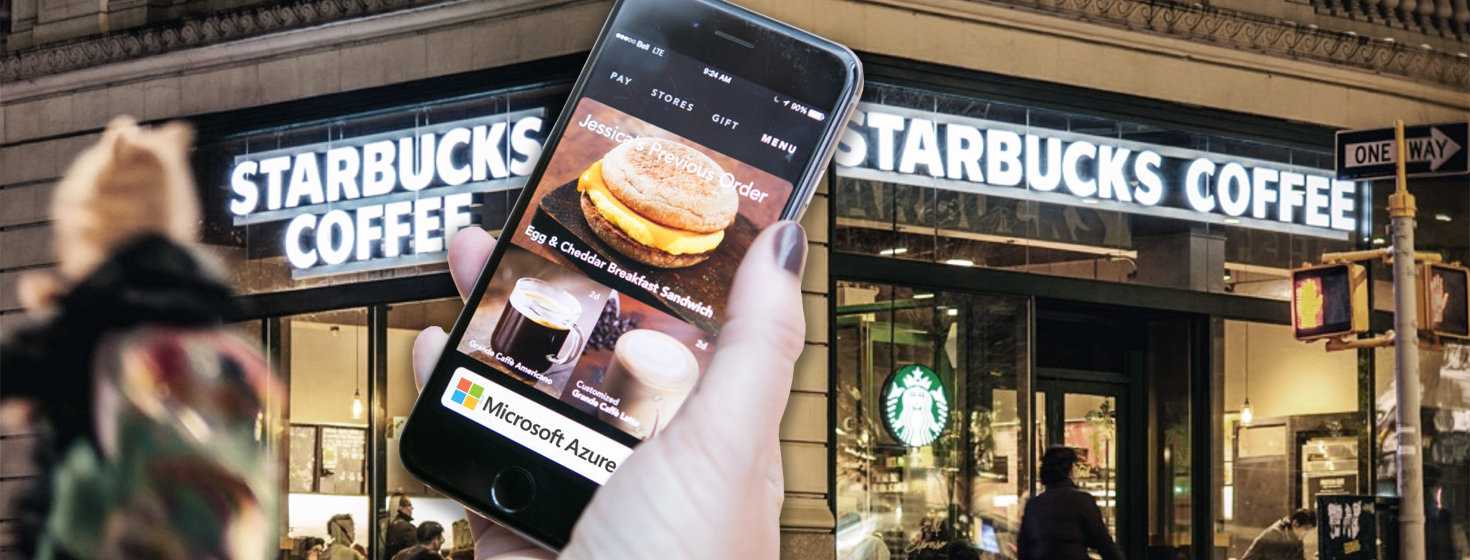
Starbucks has been using Microsoft's reinforcement learning technology, a type of machine learning in which a system learns to make decisions in complex, unpredictable environments based upon external feedback, to provide a more personalized experience for customers.
Starbucks Microsoft Technology
Walk into a Starbucks store anywhere in the world and you’ll encounter a similar sight: coffee beans grinding, espresso shots being pulled and customers talking to baristas while their coffee order is hand-crafted.
The process may look like a simple everyday scene, but it is carefully orchestrated to serve Starbucks’ more than 100 million weekly customers.
With the help of Microsoft, Starbucks is creating an even more personal, seamless customer experience in its stores by implementing advanced technologies, ranging from cloud computing to blockchain.
“We have a world-class team of technologists engaging in groundbreaking innovation each day. Their inventiveness and intellectual curiosity are matched by their dedication to enabling the Starbucks experience, and this is increasingly critical to how technology has to show up for us,” says Gerri Martin-Flickinger, Starbucks executive vice president and chief technology officer.
“Everything we do in technology is centered around the customer connection in the store, the human connection, one person, one cup, one neighborhood at a time.”
At the Microsoft Build 2019 conference, Microsoft CEO Satya Nadella recently demonstrated how Starbucks delivers its signature customer experience with new technologies (watch the video above).
Making Recommendations More Relevant using Reinforcement Learning
Starbucks has been using reinforcement learning technology - a type of machine learning in which a system learns to make decisions in complex, unpredictable environments based upon external feedback - to provide a more personalized experience for customers who use the Starbucks® mobile app.
Within the app, customers receive tailor-made order suggestions generated via a reinforcement learning platform that is built and hosted in Microsoft Azure.
Through this technology and the work of Starbucks data scientists, 16 million active Starbucks® Rewards members now receive thoughtful recommendations from the app for food and drinks based on local store inventory, popular selections, weather, time of day, community preferences and previous orders.
“Just like their relationship with a barista, customers receive the same care and personalized recommendations when it comes from our digital platforms,” says Jon Francis, senior vice president, Starbucks Analytics and Market Research.
This personalization means that customers are more likely to get suggestions for items they will enjoy.
For example, if a customer consistently orders dairy-free beverages, the platform can infer a non-dairy preference, steer clear of recommending items containing dairy, and suggest dairy-free food and drinks.
In essence, reinforcement learning allows the app to get to know each customer better. And while the recommendations are driven by a machine, the end goal is a personal interaction.
“Starbucks is an experience,” says Martin-Flickinger. “And it’s centered around that customer connection in the store, the human connection, one person, one cup, one neighborhood at a time. I think that mission is so critical to how technology has to show up for us.”
Now, Starbucks is looking to expand this technology to the drive-thru experience.
“As an engineering and technology organization, one of the areas we are incredibly excited to be pursuing is using data to continuously improve the experience for our customers and partners,” says Martin-Flickinger.
“Using data for personalization is vital to our mobile app, and now we are leveraging data to improve our drive-thru experience.”
Because the technology does not have the individual order histories for drive-thru customers that are available for mobile app customers, it will generate relevant drive-thru recommendations based on store transaction histories and more than 400 other store-level criteria. These recommendations will be offered proactively on a digital menu display from which customers can order.
Eventually, customers will be able to explicitly opt into recommendations that are even more personalized.
Starbucks is currently testing this technology in its Tryer Center innovation hub in Seattle, with plans to roll it out soon. And according to Francis, reinforcement learning will continue to have an important role at Starbucks in many other applications going forward.
“We’re meeting our customers where they are - whether in-store, in their car or on the go through the app - using machine learning and artificial intelligence to understand and anticipate their personal preferences,” he says.
“Machine learning also plays a role in how we think about store design, engage with our partners, optimize inventory and create barista schedules. This capability will eventually touch all facets of how we run our business.”
Implementing IoT to Deliver a Smooth Coffee Experience
Each Starbucks store has more than a dozen pieces of equipment, from coffee machines to grinders and blenders, that must be operational around 16 hours a day. A glitch in any of those devices can mean service calls that rack up repair costs.
More significantly, equipment problems can potentially interfere with Starbucks’ primary goal of providing a consistently high-quality customer experience.
“Any time we can create additional moments of connection between our partners and customers, we want to explore and activate,” says Natarajan “Venkat” Venkatakrishnan, vice president of global equipment for Starbucks.
“Our machines are what allow our partners to create that special beverage, and ensuring they are working properly is critical.”
To reduce disruptions to that experience and securely connect its devices in the cloud, Starbucks is partnering with Microsoft to deploy Azure Sphere, designed to secure the coming wave of connected internet of things (IoT) devices across its store equipment.
The IoT-enabled machines collect more than a dozen data points for every shot of espresso pulled, from the type of beans used to the coffee’s temperature and water quality, generating more than 5 megabytes of data in an eight-hour shift.
Microsoft worked with Starbucks to develop an external device called a guardian module to connect the company’s various pieces of equipment to Azure Sphere in order to securely aggregate data and proactively identify problems with the machines.
The solution will also enable Starbucks to send new coffee recipes directly to machines, which it has previously done by manually delivering the recipes to stores via thumb drive multiple times a year.
Now the recipes can be delivered securely from the cloud to Azure Sphere-enabled devices at the click of a button.
“Think about the complexity - we have to get to 30,000 stores in nearly 80 markets to update those recipes,” says Jeff Wile, senior vice president of retail and core technology services for Starbucks Technology. “That recipe push is a huge part of the cost savings and the justification for doing this.”
The overarching goal with Azure Sphere, Wile says, is to shift from reactive maintenance to a predictive approach that heads off issues before they happen.
Longer term, the company envisions leveraging Azure Sphere for additional uses such as managing inventory and ordering supplies and will encourage suppliers of its devices to build the solution into future versions of their products.
Using Blockchain to Share Coffee’s Journey with Customers
Starbucks is also innovating ways to trace the journey that its coffee makes from farm to cup - and to connect the people who drink it with the people who grow it.
The company is developing a feature for its mobile app that shows customers information about where their packaged coffee comes from, from where it was grown and what Starbucks is doing to support farmers in those locations, to where and when it was roasted, tasting notes and more.
For Starbucks, which has long been committed to ethical sourcing, knowing where its coffee comes from is not new.
Last year alone, Starbucks worked with more than 380,000 coffee farms.
However, digital, real-time traceability will allow customers to know more about their coffee beans.
Perhaps even more important and differentiating are the potential benefits for coffee farmers to know where their beans go after they sell them.
This new transparency is powered by Microsoft’s Azure Blockchain Service, which allows supply chain participants to trace both the movement of their coffee and its transformation from bean to final bag.
Each state change is recorded to a shared, immutable ledger providing all parties a more complete view of their products’ journey.
This can not only empower farmers with more information and visibility once the beans leave their farms but also allows customers to see the impact their coffee purchase has on the real people they’re supporting.
Providing a “More Complete View” of the Supply Chain
“While high-quality, handcrafted beverages are so important, it’s the stories, the people, the connections, the humanity behind that coffee that inspires everything we do,” says Michelle Burns, Starbucks senior vice president of Global Coffee & Tea.
“This kind of transparency offers customers the chance to see that the coffee they enjoy from us is the result of many people caring deeply.”
Starbucks previewed digital traceability for shareholders at its annual meeting in March. Eventually, customers will be able to use the Starbucks mobile app to trace the journey of their Starbucks packaged coffee.
“What we’re still working on is interviewing coffee farmers in Costa Rica, Colombia, and Rwanda, learning more about their stories, their knowledge, and their needs in order to determine how digital traceability can best benefit them,” says Burns.
“We’re forging new ground here, so we’re excited to report more in the coming months.”
Starbucks is notably working with the Bakkt digital assets and bitcoin futures platform being developed by Intercontinental Exchange, the parent firm of the New York Stock Exchange.
Learn about the latest innovations and imagine new ways to create solutions at Build 2019.
Source: Microsoft | Transform
Related Article: Logistics Company Transforms Customer Service & Reduces Costs by 50 Percent with Move to Microsoft's Azure Cloud
Taking a disruptive, cloud-based approach to business-to-business communications in the third-party logistics industry, LEGACY Supply Chain Services now services customers 70 percent faster and reduces technology operating costs by 50 percent using Microsoft Azure Logic Apps.
Related Blockchain White Papers
How Blockchain Will Transform the Modern Supply Chain
This ebook describes how blockchain has the power to bring transparency and accountability to even the most complex supply chains, and why it is poised to transform the way suppliers, retailers, and consumers interact with one another and their goods. Download Now!
A Consensus On The Truth? Blockchain Applications in Supply Chain Management
The MIT Center for Transportation & Logistics held two roundtable events, one in 2017 another in 2018, with supply chain practitioners on the topic of blockchain in the supply chain – this roundtable report examines the blockchain challenges and concerns discussed at both events. Download Now!
Bridge to Blockchain: A Platform for Orchestrating Multi-Enterprise Networks
In this white paper, you will learn why blockchain platforms vary widely in terms capability, disclosure, confidentiality, anonymity, the cost to use, and speed, and why companies need to leverage more than one blockchain network to realize game-changing business models. Download Now!
Blockchain for Supply Chain: Ghost in the Machine or Breakthrough Technology?
The purpose of this white paper is to demonstrate the myriad ways in which the open-source software known as “blockchain” can be applied to international trade. Download Now!
An Introduction to Blockchain in Supply Chain Management
In this exclusive, and educational resource, “An Introduction to Blockchain and Its Potential Benefits and Drawbacks in Supply Chain Management,” you will learn and understand Blockchain's role in the industry and what supply chain executives need to consider now and in the future. Download Now!
More Resources on Blockchain (in the Supply Chain)
Article Topics
Microsoft News & Resources
The Two Most Important Factors in Last-Mile Delivery Microsoft Unveils New AI Innovations For Warehouses C.H. Robinson and Microsoft partner up for real-time supply chain visibility initiative DHL Supply Chain, Blue Yonder, and Microsoft team up for robotics collaboration FedEx and Microsoft partner up for supply chain collaboration FedEx and Microsoft Join Forces to Compete Against Amazon for Package Shipping Microsoft Invests $1 Billion in Elon Musk-Backed AI Company More MicrosoftLatest in Supply Chain
How Much Extra Will Consumers Pay for Sustainable Packaging? FedEx Announces Plans to Shut Down Four Facilities U.S. Manufacturing is Growing but Employment Not Keeping Pace The Two Most Important Factors in Last-Mile Delivery Most Companies Unprepared For Supply Chain Emergency Microsoft Unveils New AI Innovations For Warehouses Let’s Spend Five Minutes Talking About ... Malaysia More Supply Chain